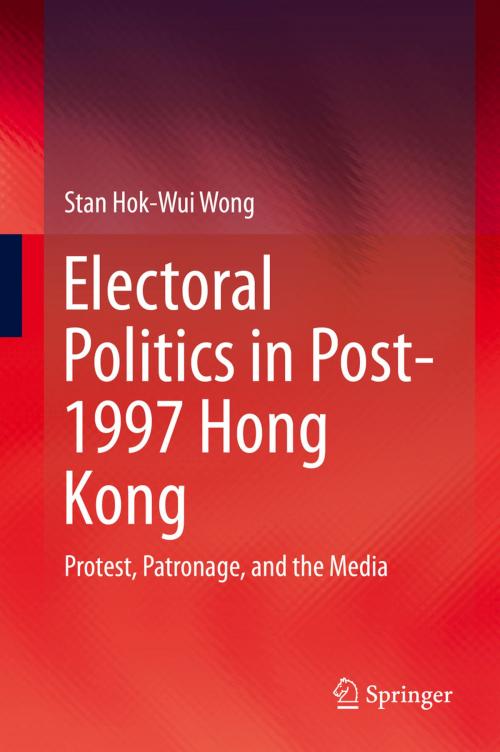Electoral Politics in Post-1997 Hong Kong
Protest, Patronage, and the Media
Nonfiction, Social & Cultural Studies, Political Science, Politics, History & Theory| Author: | Stan Hok-Wui Wong | ISBN: | 9789812873873 |
| Publisher: | Springer Singapore | Publication: | March 29, 2015 |
| Imprint: | Springer | Language: | English |
| Author: | Stan Hok-Wui Wong |
| ISBN: | 9789812873873 |
| Publisher: | Springer Singapore |
| Publication: | March 29, 2015 |
| Imprint: | Springer |
| Language: | English |
This book offers a novel and parsimonious framework to help understand Hong Kong’s lengthy democratic transition by analyzing the electoral dynamics of the city’s competitive authoritarian political system, where pro-Beijing and pro-democracy parties have struggled to keep each other in check. The author demonstrates how a relatively liberal media environment has shaped the electoral incentives of the opposition and the pro-establishment elite differently, which has helped the latter improve its basis of electoral support. The political explanation the book puts forward seeks to shed new light on why many autocracies are interested in regularly holding elections that are considered somewhat competitive. This book will be of great interest not only to specialists in comparative studies of democratization, but also to all those concerned with Hong Kong’s democratic transition.
This book offers a novel and parsimonious framework to help understand Hong Kong’s lengthy democratic transition by analyzing the electoral dynamics of the city’s competitive authoritarian political system, where pro-Beijing and pro-democracy parties have struggled to keep each other in check. The author demonstrates how a relatively liberal media environment has shaped the electoral incentives of the opposition and the pro-establishment elite differently, which has helped the latter improve its basis of electoral support. The political explanation the book puts forward seeks to shed new light on why many autocracies are interested in regularly holding elections that are considered somewhat competitive. This book will be of great interest not only to specialists in comparative studies of democratization, but also to all those concerned with Hong Kong’s democratic transition.















